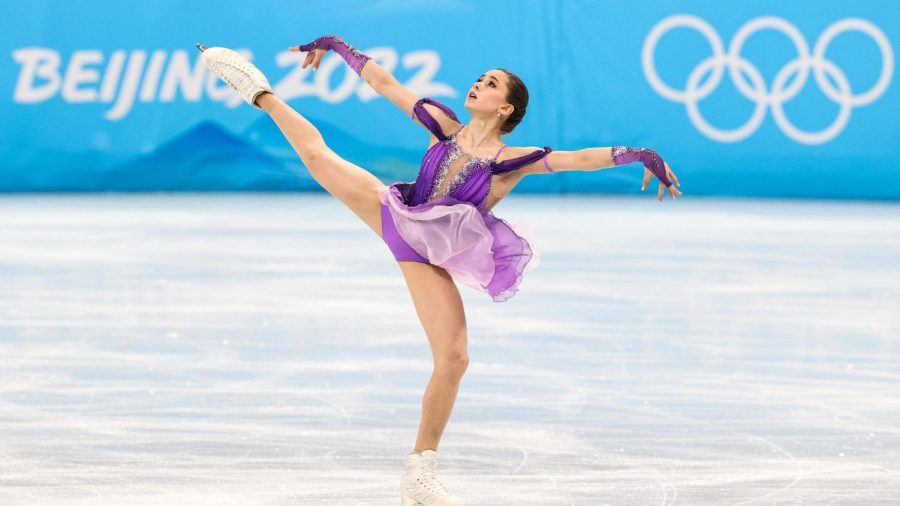Figure Skating Controversy at the Olympics
March 4, 2022
The Winter Olympics were held in Beijing from February 4th to February 20th. One of the events that athletes compete in during the Olympics is figure skating. This is a sport where athletes, as singles, in pairs, or in groups, perform turns, jumps, and other technical moves on ice. Performing in the women’s figure skating division was a fifteen year old Russian skater named Kamila Valieva. Previously, she won in the 2022 European Championships. As a result, going into the Olympics, many people expected her to win the gold medal. Valieva did this in the figure skating team event. In this event, she landed a quadruple jump, being the first woman to do so. However, that same day, the World Anti-Doping Agency (WADA) found a problem with the drug test that she had taken prior to the Olympics. They found that she tested positive for trimetazidine, which is a heart medication that has been banned from the Olympics. In response to this, the Russian Anti-Doping Agency (RUSADA) suspended Valieva. This meant that she could no longer participate in events in the 2022 Olympics. A day after Valieva’s suspension, the Disciplinary Anti-Doping Committee, within the RUSADA, lifted her suspension, allowing her to compete in following Olympic events. Many people were upset about this and thought that it was unfair. Organizations such as WADA, the International Olympic Committee (IOC) and the International Skating Union (ISU) fought against the decision to remove her suspension. But, the Court of Arbitration for Sport (CAS) ultimately chose to stop her suspension. After her suspension was removed, Valieva competed in the women’s short program, where she did very well. It was then revealed that she had been taking two other heart medications called Hypoxen and L-carnitine. But, these medications are not banned from the Olympics and she reported that she was taking them to the IOC prior to the start of the Olympics. It has been said that the combination of trimetazidine, Hypoxen, and L-carnitine allow for increased stamina and less fatigue. However, Valieva claims to have been taking Hypoxen for heart “variations” and that she had taken the trimetazidine by accident because it was her grandfather’s medication. Ultimately, Valieva did not win another gold medal at the women’s short program. This was due to her falling a lot during the free skate. Given her great skill despite her young age, it will be interesting to see what will happen with Valieva in future competitions and the next Olympics.

